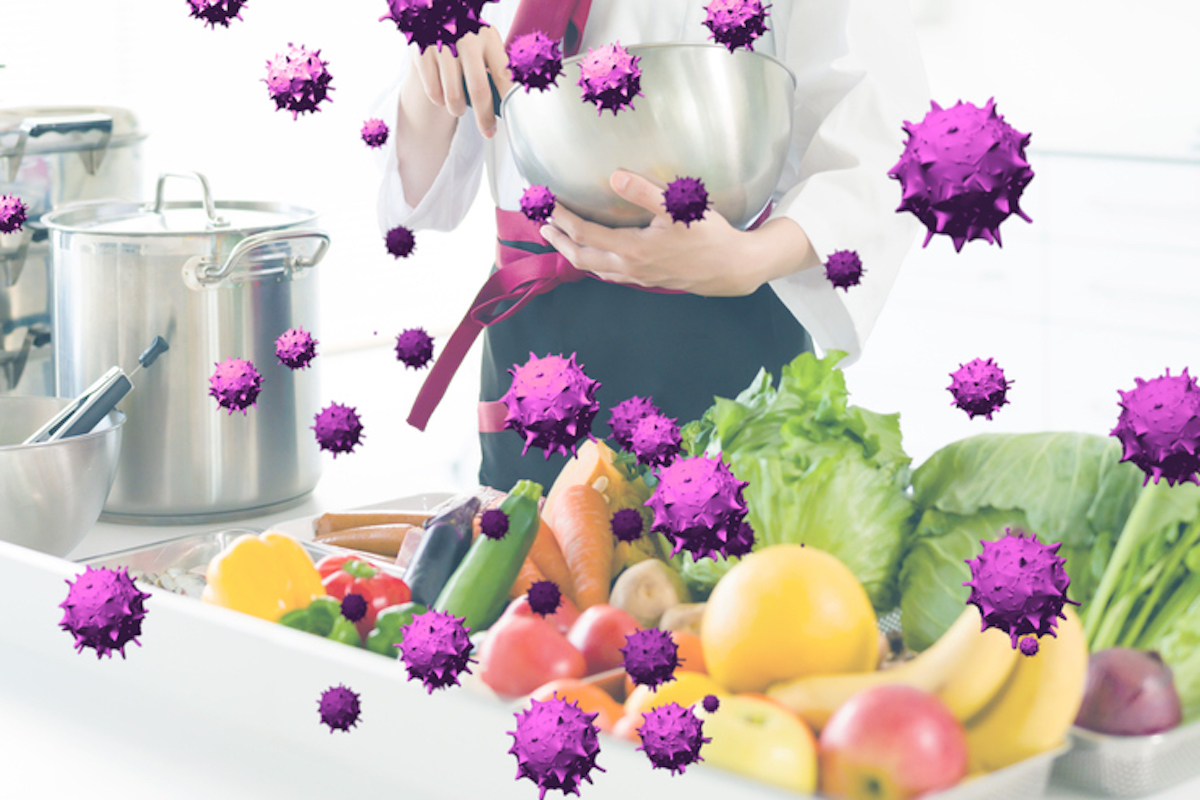Patanjali to organise free yoga, meditation camp at Mahakumbh
The camp will run from January 27 to January 30, 2025, from 5:00 AM to 7:30 AM, and will be held at Shri Gurukarshini Kumbh Mela Camp, located at Salori, Sector-9, Gangeshwar Marg.
Foodborne illnesses are quite common and it is important to know the causes and ways to prevent these diseases to keep oneself away from the agony that is caused by these diseases.

Representational Image (Picture:iStock)
According to a survey done by the Centre for Disease Control & Prevention, it is estimated that each year 48 million people get sick from a foodborne illness, 128,000 are hospitalized, and 3,000 die.
Foodborne illnesses are caused by contamination of food that has occurred at any stage of the food production, delivery, and consumption chain. They can happen from various forms of environmental contamination including pollution in water, soil, or air. Foodborne illnesses can also occur from unsafe food storage and processing.
Advertisement
These diseases are borne from food encompass a wide range of illnesses from diarrhea to cancers. Most of them cause gastrointestinal issues, though they can also produce neurological, gynecological, and immunological symptoms. Diseases that cause diarrhea are a major problem in all countries of the world and mostly affect children under 5 years of age. Although foodborne diseases are quite common, it’s also important to know the causes of foodborne illnesses. The causes fall into the following 3 categories:
Advertisement
Biological hazards are the most common cause responsible for foodborne illnesses. These include microbes such as bacteria, viruses, and parasites. Bacteria and viruses are responsible for most foodborne illnesses. Biological hazards are the biggest threat and problem to food safety. They can be inherent in the product or can be transferred due to mishandling (e.g., time/temperature abuse).
Chemical hazards generally include natural toxins and chemical contaminants. Most of the time there are some natural toxins associated with the food itself that lead to its contamination (i.e., certain mushrooms, PSP in molluscan shellfish) and in some cases, the food gets contaminated by pathogens when it is time or temperature abused (i.e., histamine development in certain seafood species). Apart from this, some additives, such as sulfites, can be a hazard for some people.
Physical hazards can include metal shavings from cans and plastic pieces or broken glass present in food that lead to its contamination.
The symptoms of foodborne illnesses range from mild to severe and depend upon the microbe that has been ingested. However, common symptoms are as follows:
Foodborne illnesses are quite common and it is important to know the causes and ways to prevent these diseases to keep oneself away from the agony that is caused by these diseases. So, let’s know tips in order to prevent these illnesses
Practice hygiene – Practicing hygiene the first step towards the prevention of food-borne diseases. One should wash hands before handling food and often during food preparation and after going to the washroom. Washing and sanitizing all surfaces and equipment used for food preparation is imperative. Care should be taken to protect kitchen areas and food from insects, pests, and other animals. It is equally important to clean fruits and vegetables well. Using a natural and safer solution like Marico’s Veggie Clean is the best way to do so. This unique, naturally-derived solution will help you get rid of all those pesky germs, bacteria, chemicals, and waxes, which tend to go unnoticed on all your fruits and vegetables, rendering them squeaky clean in no time! Simple to use, one is only required to soak and hand rub the fresh produce in a solution made of half capful of Veggie Clean and 1 liter of water followed by rinsing the soaked produce in running water 2-3 times for about 30 seconds.
Separate raw and cooked food – It is important to separate raw meat, poultry, and seafood from other foods. This can be done by using separate equipment and utensils such as knives and cutting boards for handling raw foods.
Storage– The majority of times, food contamination occurs at the time of food storage. Care should be taken to store containers separately in different containers to avoid contact between raw and prepared foods.
Cooking – Cooking plays a vital role in preventing foodborne illnesses. One should cook food thoroughly, especially animal products like meat, poultry, eggs, and seafood.
Temperature – Keep food at the correct temperature. Make sure to not leave cooked food at room temperature for more than 2 hours. All cooked and perishable foods should be refrigerated promptly (preferably below 5°C).
Water-Water plays a very important role to prevent food-borne diseases. Make sure to use safe water while washing raw materials and vegetables. Cook food using clean and safe water.
Footnote
Foodborne illnesses are quite prevalent in today’s time. What is important is to maintain hygiene and being aware during the process of food procuring, handling, and storage.
Advertisement